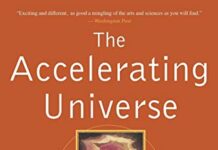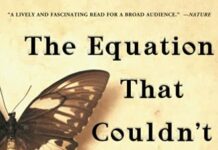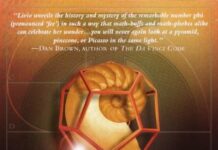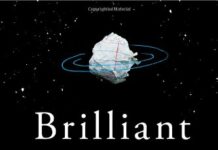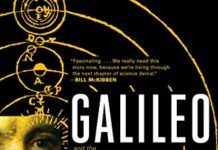
Ebook Info
- Published: 2010
- Number of pages: 308 pages
- Format: PDF
- File Size: 2.61 MB
- Authors: Mario Livio
Description
Bestselling author and astrophysicist Mario Livio examines the lives and theories of history’s greatest mathematicians to ask how—if mathematics is an abstract construction of the human mind—it can so perfectly explain the physical world.Nobel Laureate Eugene Wigner once wondered about “the unreasonable effectiveness of mathematics” in the formulation of the laws of nature. Is God a Mathematician? investigates why mathematics is as powerful as it is. From ancient times to the present, scientists and philosophers have marveled at how such a seemingly abstract discipline could so perfectly explain the natural world. More than that—mathematics has often made predictions, for example, about subatomic particles or cosmic phenomena that were unknown at the time, but later were proven to be true. Is mathematics ultimately invented or discovered? If, as Einstein insisted, mathematics is “a product of human thought that is independent of experience,” how can it so accurately describe and even predict the world around us? Physicist and author Mario Livio brilliantly explores mathematical ideas from Pythagoras to the present day as he shows us how intriguing questions and ingenious answers have led to ever deeper insights into our world. This fascinating book will interest anyone curious about the human mind, the scientific world, and the relationship between them.
User’s Reviews
Editorial Reviews: Review “Is God a mathematician? In his new book Mario Livio delves into this question, putting it into a scientific, historical and philosophical context. He steers skillfully through deep and tricky waters, but writes with clarity and ease…Read the book and decide for yourself what the answer is.” — Sir Michael Atiyah, recipient of the Fields Medal, 1966, and the Abel Prize, 2004″This highly readable book explores one of the most fascinating questions that lies at the heart of fundamental physics — why is mathematics so effective in describing nature and is mathematics an invention of the human mind or part of the fabric of physical reality? Livio provides a wonderful review of the various issues, presents a wide variety of opinions, and in addition some fascinating insights of his own. I strongly recommend this volume to anyone interested in these questions.” — David Gross, 2004 Nobel Prize Winner in Physics, Frederick W. Gluck Professor of Theoretical Physics and Director, Kavli Institute For Theoretical Physics, University of California, Santa Barbara”All science proceeds from the assumption that the cosmos is ordered in an intelligible way. Beneath the bewildering richness of natural phenomena there lies an elegant mathematical unity. How astonishing that the human mind is attuned to this hidden subtext of nature! With elegance and clarity, Mario Livio charts how, through science and mathematics, we have come to glimpse the fundamental rules on which the universe runs.” — Paul Davies, author of The Goldilocks Enigma and Director of the Beyond Center for Fundamental Concepts in Science, Arizona State University”An exhilarating foray into the founding premises of mathematical science.” — Booklist”Theologians have God, philosophers existence, and scientists mathematics. Mario Livio makes the case for how these three ideas might be related…Livio’s rich history gives the discussions human force and verve.” — Sam Kean, New Scientist About the Author Mario Livio is an internationally known astrophysicist, a bestselling author, and a popular speaker who has appeared on The Daily Show, 60 Minutes, and NOVA. He is the author of the bestsellers The Golden Ratio, Brilliant Blunders, and Galileo. He lives in Baltimore, Maryland.
Reviews from Amazon users which were colected at the time this book was published on the website:
⭐I very much enjoyed this thought provoking book. The math isn’t complex, so I believe it should be accessible to non-specialists. The question I find at least as fascinating as the title is its converse; is mathematics God? Of course, neither question is scientific or falsifiable. I do find that the author dwells a little too much on personal historic details, at least for my taste. I’ve purchased “The Equation That Couldn’t Be Solved,” so there you have it. I recommend Mario Livio to anybody who has ever been curious about the “surprising effectiveness of mathematics” in science and technology.
⭐Mario Livio’s provocative questions include:What is the meaning of philosophy, logic, and mathematics? Are some concepts universal, pre-existing man’s thoughts? To what extent does man’s conscious efforts evoke math, and originate logic – i.e. to what extent does man create the concepts, and to what extent does man receive or discover the mathematical truths, the laws of physics and nature?Livio likens this mystery of the universality of mathematical truth as the power of God, omnipresent and omnipotent, and like God, mathematics is independent of human experience. Livio introduces Roger Penrose’s concept of a triple mystery of 1) our conscious perceptions – emotions, memories, senses of life, 2) the physical world – objects, galaxies, atoms, brains, and 3) the world of Platonic mathematical forms – the laws of nature, Newton’s laws of motion, theorems of Euclidean geometry, mathematical models. The physical world obeys the rule of the world of mathematical forms, and somehow our consciousness has been begotten from this physical world; metaphorically, man formed from dust, thought from matter, and closing the circle, those thoughts can contemplate the laws of nature and appreciate the beauty of forms.I bought this book after having watched a special on PBS about math which also references physicist Max Tegmark’s book The Mathematical Universe. I recommend reading Livio first (I’ve just started Tegmark’s book, though) as Livio briefly discusses Tegmark’s ideas. Livio’s book is thought- provoking and worth reading because, as he quoted Bertrand Russell, “philosophy is to be studied…for the sake of the questions themselves; because these questions enlarge our conception of what is possible, enrich our intellectual imagination…”This book is easily 5 stars for me. It’s well-written and clear. It expounds upon the history of mathematical development from the Greeks to the present-day, so it could also be considered a history of mathematics and logic with philosophical applications. I have a few criticisms though, mainly in areas where Livio might have developed more. These are:1) I wish Livio would have discussed Penrose’s “triune” enigma in his concluding chapter, since he brought it up in the first chapter.2) Livio could have discussed “chaos” theory and indeterminate systems more, – for the implications bear directly upon his opening questions.3) Livio might have mentioned the quest in physics for the “theory of everything” or the “grand unified theory”, whose notions complement Livio’s thesis that mathematics can explain every physical aspect that can occur in the universe.4) He writes (pg. 228) “The answer to the ‘invented or discovered’ question can therefore be gleaned only (if at all) from a careful examination of many clues, deriving from a wide variety of domains.” Livio could have developed more the central tenets of “systems theory” that everything is connected to everything else, in some fashion.5) Early in the book (pg. 6) Livio discusses applying mathematical symmetry to infer laws of nature – the notion of putting symmetry principles first, with the assumption the laws of nature follow certain patterns, and then deducing general laws from them. This notion is not developed beyond this mention, however.6) I think Livio should have discussed the implications of quantum mechanics for mathematics and philosophy.Each of these areas could be developed into book-length treatments, of course, and to spend more time elaborating on these topics would indeed change the trajectory, pace, and length, of this book. Livio is primarily writing from a mathematics perspective so he’s not making this book into a “theory of everything” either.Livio provides many original insights in his book. For example, he discusses the concepts of “active” and “passive” math, the notion that active math has the specific intent of characterizing the natural laws and observable physical behavior, where passive math is entirely devoid of application at first conception, though later applications have been found in many abstruse topics that started as passive math. Livio provides a fascinating treatment of the implications of Godel’s incompleteness theorems. He writes (pg. 201) “Imagine what would have happened had the logicist endeavor been entirely successful. This would have implied that mathematics stems fully from logic – literally from the laws of thought. But how could such a deductive science so marvelously fit natural phenomena?” These are just a couple of examples of Livio’s original thinking in this book.All in all, this book is a pleasure to read, it’s a relatively quick and easy read, and his enthusiasm for the wonders and implications of mathematics, philosophy, and enquiry is not only infectious, but inspiring.
⭐This book is a masterful presentation of the history, science, and philosophy behind the question of “the unreasonable effectiveness of mathematics” in describing the physical world; and I highly recommend it. The problem itself has different aspects, one of which is whether mathematics itself is invented or discovered—that is, do mathematical patterns exist in a kind of Platonic non-material realm which human intellects can nonetheless access, or are they all simply reducible to the activities of neurons, synaptic connections, and electrical impulses existing within material human brains. A second problem concerns the relationships of mathematical patternings—whether Platonic or neurological—to the external physical world, extending in applicability from the activity of subatomic particles to collisions of black holes. In the latter realm mathematics, of course, has amazing power not only to explain and predict the behavior of discrete physical objects or sets of them; it has also enabled the unification of formerly disparate understandings of a wide varieties of areas in physics (e.g., pendulum motions and planetary orbits). Further, its explanatory and predictive power in physics has frequently not been realized until decades or centuries after the mathematics itself has been developed (e.g., non-Euclidean geometry in Einstein’s general theory of relativity; knot theory in DNA genetics). Indeed, the existence of symmetrical patterns in pure mathematics has often led researchers to look—successfully—for physical phenomena whose very existence would otherwise not have been suspected at all without the prior math. Further, the exact mathematics underlying these stunning correspondences has often been discovered separately and simultaneously by entirely different thinkers who spoke different languages. And all of these amazing correspondences entail an inescapable perception of remarkable beauty. Although Livio’s exposition of the problems and his presentation of the evidence and historical reasoning about the “unreasonable effectiveness” is superb, I find his conclusions are rather a let-down. He “splits the difference” in asserting that “Our mathematics is a combination of inventions and discoveries” as, for instance, in maintaining that the axioms of Euclidean geometry are invented concepts, while its theorems are discoveries; and that the concept of prime numbers is an invention while theorems about them are discoveries. This tack, however, does not resolve the ontological issue of “Platonic vs. neurological” existence, nor does it explain the amazing correspondence of either type of existence to material physical realities outside the Platonic ideational realm and equally outside the neurological activities of electrons and synapses within individual human skulls. Regarding the latter materialist thinking, Livio quotes the observation of computer scientist Richard Hamming, that “Considering the effects of evolution we are looking for via selection of small chance variation [within a bound of 200 generations], it does not seem to me that evolution can explain more than a small part of the unreasonable effectiveness of mathematics.” Livio himself adds, “Even if logic had been deeply embedded in our ancestors’ brains, it is difficult to see how this ability could have led to abstract mathematical theories of the subatomic world, such as quantum mechanics, that display stupendous accuracy.” In other words, human mathematical—like musical—abilities far exceed what evolution requires for the simple transmission of genes from one generation to the next; and an evolutionary explanation of the “unreasonable effectiveness” thereby falls far short. In presenting the conflict of “ideational” vs. “materialist” explanations of that effectiveness I think Livio could have spun out the implications of Godel’s theorem further than he does, particularly its implications for the status of the observer of any system, and whether his/her own functioning can be reductively explained in terms of matter, energy—and mathematics. I think the bottom line here is succinctly captured in Livio’s quotation Philip Davis and Reuben Hirsch, in their book The Mathematical Experience: “Most writers on the subject seem to agree that the typical working mathematician is a Platonist [views mathematics as discovery] on weekdays and a formalist [views mathematics as invention] on Sundays. This is, when he is doing mathematics he is convinced he is dealing with an objective reality whose properties he is attempting to determine. But then, when challenged to give a philosophical account of this reality, he finds it easiest to pretend that he does not believe in it at all.”
⭐Views of many great Mathematics alive and dead.what Mathematics is. Written very well and can be followed by anyone who is interested in Mathematics and remembers some Mathematics learn in school.
⭐… rundum die faszinierende Frage, ob die Mathematik bloß eine Erfindung der Menschen (des Geistes) ist, um die Welt um ihn herum (inklusive sich selbst) besser zu verstehen, oder dass die Welt selbst genau nach den Mustern der unterschiedlichen mathematischen Theorien gestrickt ist und die Aufgabe der Wissenschaft (die Bemühungen der Wissenschaftler) darin besteht, diese mathematische Muster zu entdecken.Beide Fälle stellen uns für Rätsel: im erste Fall ist es die verblüffende Passung der Mathematik auf die Welt und die trotzdem nicht auszuschließende Möglichkeit, dass die Wirklichkeit, was immer sie ist, doch anders ist als wir uns (mittels unserer mathematischen Modelle) vorstellen.Im zweiten Falle ist es die verblüffende Eigenschaft der Natur, dass sie Organismen hervorgebracht hat, die in der Lage sind, sich über eben diese Natur Gedanken zu machen und sogar immer erfolgreichere Erklärungen, Modellen und Theorien aufzustellen.In beiden Fällen bleibt nichtzuletzt die Verwunderung darüber, dass überhaupt so viel Ordnung und Struktur vorhanden ist – egal ob sie jetzt von uns oder von der Natur kommt -, wo doch ziemlich unumstrittene physikalische Theorien behaupten, dass die Natur sich eher in Richtung Unordnung (Entropie) entwickelt.Mario Livio nimmt uns mit auf einer eindrucksvollen Reise entlang vielen Stationen der mathematischen Geschichte, wobei es immer wieder um diese Frage, und die mehr oder weniger expliziten Antworte der berühmtesten Mathematiker, geht.Insbesondere faszinieren ihm die Fälle, wo Mathematiker ‘offensichtlich’ ohne Bezug auf irgendwelche physikalische Phänomene abstrakte Theorien entwickelt haben, die dann urplötzlich und im nachhinein doch ganz konkrete Anwendungen gefunden haben (Beispiele: Coding Theory, Knot Theory). Was sagr uns das über das Dilemma: Erfindung oder Entdeckung?Am Schluss bleibt Mario Livio eher vorsichtig in seinem Fazit: die Erfolgsgeschichten der mathematischen Erklärung der Natur (inklusive der Spezies Homo Sapiens) sollten uns nicht blind dafür machen, dass wir eben vieles (noch) nicht erklärt haben und inzwischen auch ziemlich überzeugend nachweisen können, dass einiges niemals erklärt (im Sinne von: vorhergesagt) werden kann (als Beispiel nennt Livio, wie könnte es anders sei, die Chaostheorie).
⭐
⭐Excellent, bien reçu, mais par contre, de petits scratchs sur la façade, personnellement, cela ne me dérange pas, car je veux le contenu, mais pour ceux qui veule un livre impeccable, mais bon, cela ne veut pas dire que ce sera ainsi pour vous. Livre très intéressant, mais un peu de longeures je trouve.. 🙂
⭐
⭐This should be renamed as history of Mathematics, as it mostly delt with the history rather than intricacies of Nature.It would be a great book if the vast history in cut down to brief history spreading not more than 20 pages and the remaining pages purely dealing with Nature’s amazing secrets
⭐This book is pretty higher standard, 1st you know the mathematics very well then you can read and understand the book clearly. The paper quality of the book is awesome.
Keywords
Free Download Is God a Mathematician? in PDF format
Is God a Mathematician? PDF Free Download
Download Is God a Mathematician? 2010 PDF Free
Is God a Mathematician? 2010 PDF Free Download
Download Is God a Mathematician? PDF
Free Download Ebook Is God a Mathematician?
